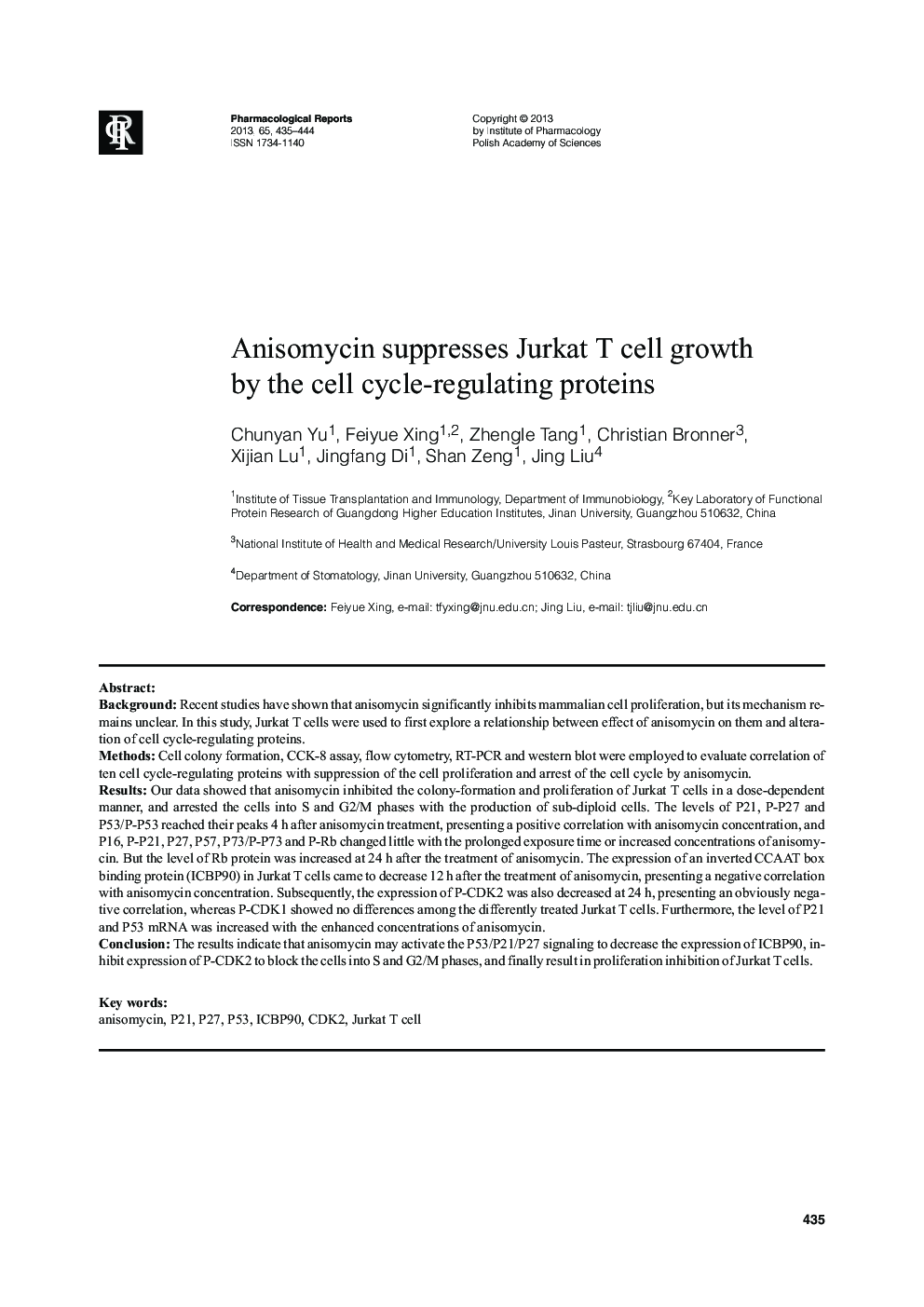| Article ID | Journal | Published Year | Pages | File Type |
|---|---|---|---|---|
| 2011509 | Pharmacological Reports | 2013 | 10 Pages |
BackgroundRecent studies have shown that anisomycin significantly inhibits mammalian cell proliferation, but its mechanism remains unclear. In this study, Jurkat T cells were used to first explore a relationship between effect of anisomycin on them and alteration of cell cycle-regulating proteins.MethodsCell colony formation, CCK-8 assay, flow cytometry, RT-PCR and western blot were employed to evaluate correlation of ten cell cycle-regulating proteins with suppression of the cell proliferation and arrest of the cell cycle by anisomycin.ResultsOur data showed that anisomycin inhibited the colony-formation and proliferation of Jurkat T cells in a dose-dependent manner, and arrested the cells into S and G2/M phases with the production of sub-diploid cells. The levels of P21, P-P27 and P53/P-P53 reached their peaks 4 h after anisomycin treatment, presenting a positive correlation with anisomycin concentration, and P16, P-P21, P27, P57, P73/P-P73 and P-Rb changed little with the prolonged exposure time or increased concentrations of anisomycin. But the level of Rb protein was increased at 24 h after the treatment of anisomycin. The expression of an inverted CCAAT box binding protein (ICBP90) in Jurkat T cells came to decrease 12 h after the treatment of anisomycin, presenting a negative correlation with anisomycin concentration. Subsequently, the expression of P-CDK2 was also decreased at 24 h, presenting an obviously negative correlation, whereas P-CDK1 showed no differences among the differently treated Jurkat T cells. Furthermore, the level of P21 and P53 mRNA was increased with the enhanced concentrations of anisomycin.ConclusionThe results indicate that anisomycin may activate the P53/P21/P27 signaling to decrease the expression of ICBP90, inhibit expression of P-CDK2 to block the cells into S and G2/M phases, and finally result in proliferation inhibition of Jurkat T cells.
